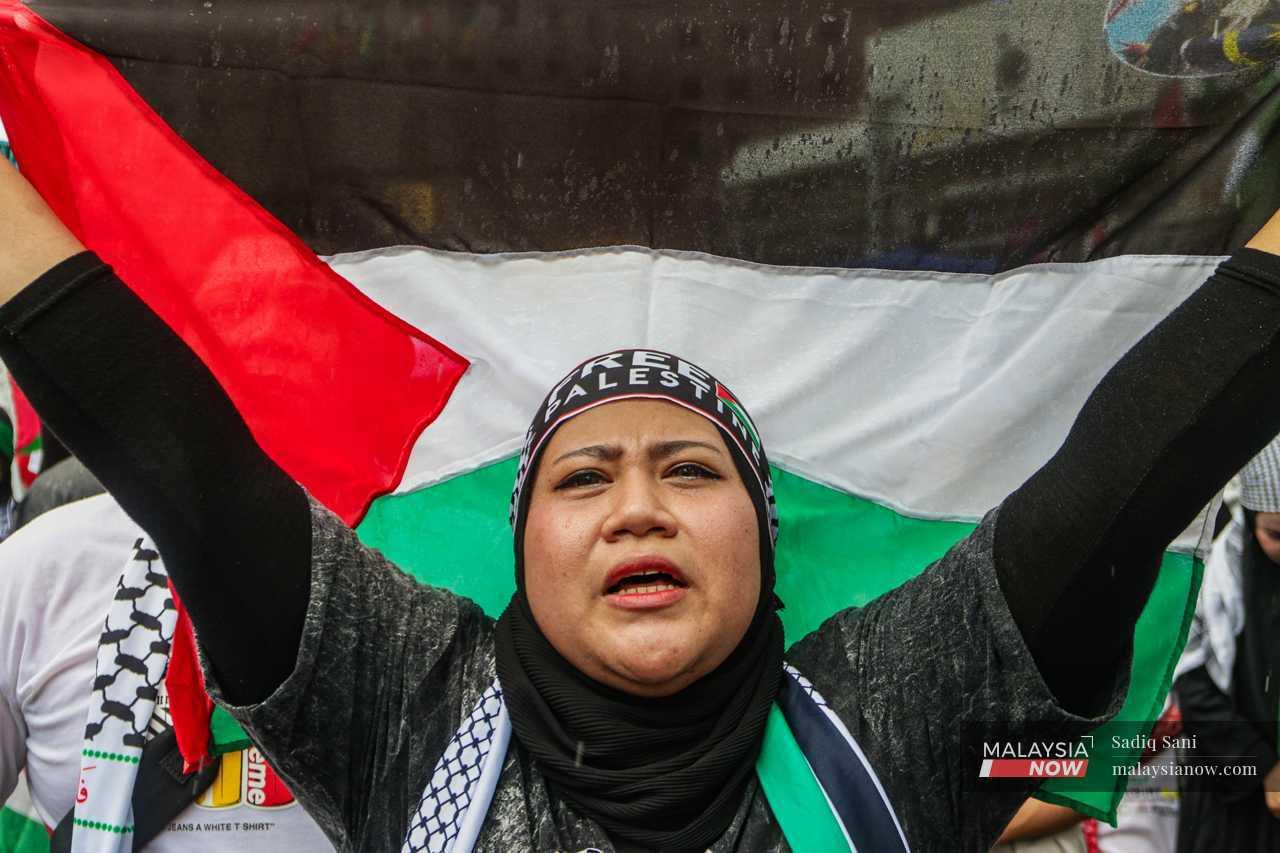Malaysians lend a hand to Palestinians with cryptocurrency
But donations must show a certain degree of transparency in order to be recognised as a legitimate contribution.
Just In
With global sentiments high in support of the Palestinian plight, there has been a mushrooming of online fundraising drives to help channel donations to the occupied territories.
One popular way has been through the use of cryptocurrency, a virtual currency that is not tied to any central banking authority as is the case with conventional money.
The use of such digital currency is not new as Palestinian groups resisting Israel have already been using various methods of raising funds through bitcoin, amid a ban by some countries on sending money due to their designation of these groups as terrorism movements.
More recently, the Save Palestine (PAL) coin was launched for the purpose of collecting donations.
The PAL coin allows buyers to purchase the token while at the same time donating to the Palestinian cause. Buyers become holders of the cryptocurrency and are able to swap it to Binance Coin on the Pancake Swap website, a cryptocurrency exchange, before converting it to other fiat currency such as the US dollar or ringgit.
Donations are transferred to the intended recipients every week, based on the coin’s market capitalisation.
Crypto industry player Ahmad Alif AS Ahmad Shariffuddin said such cryptocurrency must show a certain degree of transparency in order to be recognised as a legitimate donation.
“When a coin is introduced, it must have a purpose. If it is for donations, people will have to buy the coin to make the donation, which means the founder will receive the money.
“The team behind it must show that all the money goes to the intended receivers by using blockchain technology. They must show the address of the original wallet so that people can see the movement of the coin,” he told MalaysiaNow, adding that the amount transferred to the intended receivers must be equal to the amount of coin sold.
To give a coin its value, Aliff said crypto coins are usually backed by a project during their initial coin offering. The public then purchases the coin hoping that the value will increase.
On the other hand, a coin introduced for the sake of charity would not have any value at all, he said.
“The coin that donators purchase is just a ‘receipt’ of the donation. Those who introduce it must not speculate or raise hope that such coin would have increased in value and that donators would profit in the long term. That is not donation anymore,” he added.
Aside from this, he said the founder must reveal themselves as the party responsible for the donation and the coin, as well as declare how much they raised.
When contacted, PAL cryptocurrency co-founder Radzi Tajuddin said the initiative to aid the Palestinians was legitimate.
He and several other local youth digital entrepreneurs launched PAL last week during the height of the Israeli-Hamas conflict.
Kelantan FC owner Norizam Tukiman was among those who bought the coin, saying he had done so as a way of donating to the Palestinians.
“Basically we want to tap the growing crypto community,” Radzi said.
“There are organisations which already collect from those who have money, but there has yet to be anyone collecting donations from those who have crypto money.”
Explaining the mechanism of PAL, he said it works just like fiat money, the value of which increases with the trust that people put in it.
“The value increases as more and more people buy the currency. From our supply of the token, we reserve 30% for donations to the Palestinians. Another 40% is for the purchasers and the remaining 30% is for controlling the supply.
“As of Friday, RM50,000 worth of the currency had been donated to Global Sadaqah,” he said, adding that the cryptocurrency would be converted to fiat money by the receivers.
He also assured that donations are transparent as blockchain is a public ledger.
“If we sent a donation through bank transaction, usually we will show proof of the transaction with a screenshot of the receipt. With this technology, the public can see the intended address of the donation. Our team does not take a single sen, and there is no profiteering from our side.”
He added that he had decided to reveal himself as the co-founder to ensure transparency and public trust in light of the rising number of “shitcoin”.
Shitcoin is a term used to describe a coin or token that has no particular purpose, the founders of which are anonymous. Examples of this are Dogecoin and the Shiba Inu coin.
“Shitcoin founders are anonymous. They reserve a portion of the coin supply for themselves, wait for the value to increase before dumping the coin for profit,” said Radzi.
Subscribe to our newsletter
To be updated with all the latest news and analyses daily.



